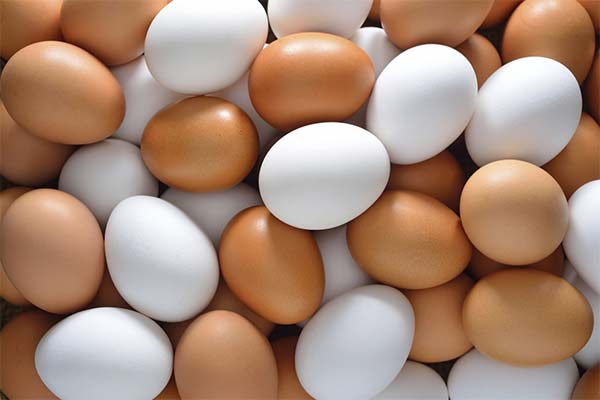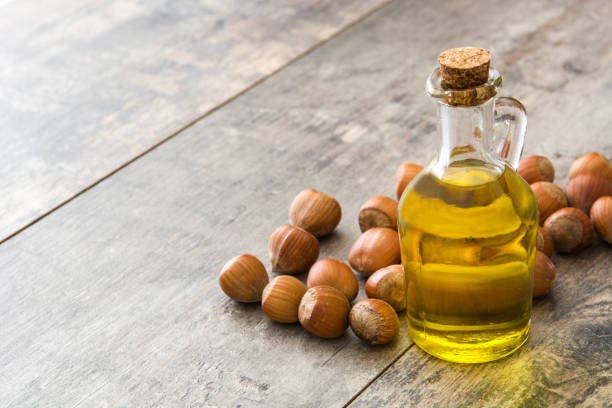In nature, the coloration of eggs depends on the environment in which the birds live. The main task of the multicolored shell is to blend in as well as possible with the surrounding landscape and give the chick a chance to survive. Poultry have no such need. They don’t need to hide and the safe living conditions have paid off.
The color of the eggs in chickens is white or brown. The question often arises as to whether there are differences other than the color of the shell.
Why is the color of the eggs different
Domestic layers are kept in approximately the same conditions, eating the same feed, but the owners receive eggs of different shades. The main reason is the coloration of the bird itself. Mottled and dark plumage is a sign that the eggs will be brown, beige. Breeds with white feathers also have the same shell color. They simply lack the natural pigment.

Protoporphyrin is responsible for the brown color. Its addition to the structure of the upper layer occurs at the last stage of egg development. Initially it is white, and the coloration is programmed at the genetic level.
Interesting: the saturation of the brown pigment changes depending on the season.
Which eggs taste better
The composition of the product is exactly the same. Depending on the breed, the shade of the shell, the size of the eggs, and the frequency with which the layers lay them vary. Pure egg breeds lay eggs almost every day, meat-egg breeds half as often.
The flavor and health benefits of the same diet will coincide completely. In this aspect, it is influenced by the balance of the laying hen’s diet, receiving all the necessary vitamins and supplements. There is no difference in the composition, because the nutrient content of the egg is formed long before the addition of pigment.
What kind of eggs to buy – a question of priorities of the particular housewife. The main thing is that they have all the necessary veterinary certificates, stored in the right conditions for a strictly limited period.
Do not forget that this product also has a shelf life and it is the same for eggs with any shade of shell. Raw ones are stored in the refrigerator for up to 30 days.
When selecting eggs, their coloring is of secondary importance. First of all, pay attention to the integrity of the outer shell, the consistency of quality and price. It is safer to buy the product from large producers who value their reputation.
When buying from a private farm, it is desirable to ask about a veterinary certificate. By the way, white eggs have a huge advantage on the market before Easter. They can be dyed in the color of your choice and the natural pigment does not distort the hue. And in everyday life, it does not matter what kind of shell the egg has. The main thing is that it is fresh.
Read also:
- How do I check my gastrointestinal function?Stomach pain, constipation or diarrhea, bloating, belching, heartburn? These are all symptoms of problems in the gastrointestinal tract. It starts with the mouth and esophagus and ends with the intestines and rectum.
- What are the benefits of hazelnut oil for the skin?Hazelnut oil is rich in vitamins and essential fatty acids that nourish the skin. Here are a few reasons why you should add this oil to your skin care routine.
- Immune-boosting aromatic oilsThere are many products and treatments that can help your body to build a natural resistance to the harsh winter months, and aromatherapy is one of them. There are many studies supporting the healing power of aromatherapy and it is good for both mental and physical health. Aromatic essential oils also have many health benefits… Read more: Immune-boosting aromatic oils
- Marula Oil Benefits, Uses, and PrecautionsMarula Oil is an exotic oil that comes from the African Marula tree. It’s a good ingredient for skin, hair, and nails. Learn more about the benefits and precautions of Marula Oil with our guide.
- Goal setting for students, children and young peopleRemember when you learned how to set goals? If you have trouble answering this question, you are not alone! Most of us don’t spend much time thinking about how we set our goals. In fact, many of us don’t even think of goal setting as a skill; rather, it’s something we do without much thought.… Read more: Goal setting for students, children and young people
The articles on this site are for information purposes only. The site administrators are not responsible for attempting to apply any recipe, advice or diet, nor do they guarantee that the information provided will help or harm you personally. Be cautious and always consult a doctor or nutritionist!
*All products recommended are selected by our editorial team. Some of our articles include affiliate links. If you buy something through one of these links, you help us earn a small commission from the seller and thus support the writing of useful and quality articles.









